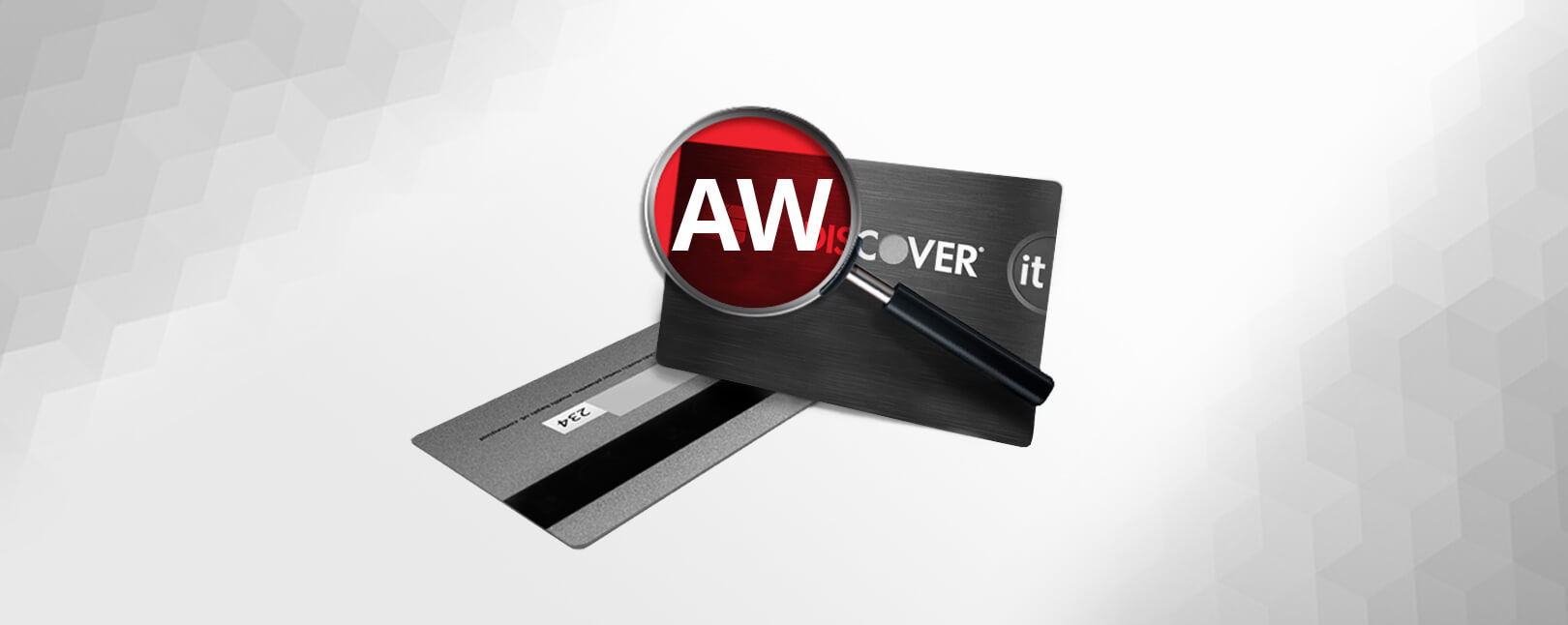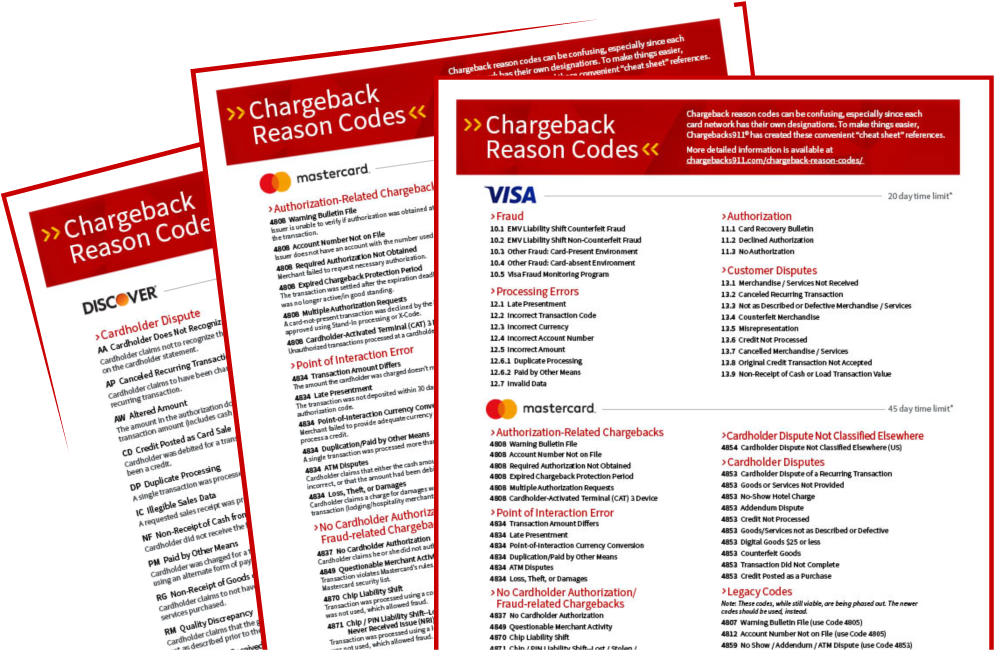
What Merchants Can Do About Discover Reason Code AW Chargebacks
More than 48 million merchants in over 200 countries around the world accept Discover. In the United States, 99% of merchants who accept credit cards also take Discover cards.
Discover’s powerful payment network is buttressed by its comprehensive system of chargeback reason codes. This is a series of two- to four-digit alphanumeric codes that help merchants identify the justification for a dispute when they receive one.
Among the card network’s roughly two dozen chargeback codes is reason code AW, one of 11 classified under the Service Disputes category. This article discusses reason code AW chargebacks, what causes them, and how you can prevent and contest disputes of this kind.
Recommended reading
- What is Compelling Evidence? Examples & Tips to Win Disputes
- Credit Card Disputes | Step-by-Step Process Guide for 2025
- Mastercard Chargeback Time Limits: The 2025 Guide
- How to Detect Fraud: Top 20 Tips to Stop eCommerce Scams
- Verifi Order Insight: Using Data to Block Visa Disputes
- Fake Google Reviews: How to Identify, Remove & Prevent
What is Discover Reason Code AW?
Discover reason code AW — Altered Amount occurs when a cardholder disputes a card transaction claiming that you charged an amount that differs substantially from the amount authorized. ATM and cash advance transactions can also be disputed using this reason code.
Discover cardholders have 120 calendar days from the date of the transaction to file a chargeback with their issuing bank. Issuers who submit a Ticket Retrieval Request within this timeframe have an additional 30 days following the completion of the request to escalate it to a chargeback.
What Caused This Dispute?
A cardholder may file a reason code AW chargeback when you charge them more than the authorized amount. You may also encounter reason code AW chargebacks when:
Reason code AW disputes can also happen if the cardholder was charged the amount authorized, but filed a chargeback anyway because they wanted something for free. This would be an invalid claim, and you can respond through representment.
How to Respond to Discover Reason Code AW Chargebacks
While many Discover reason code AW chargebacks may be legitimate, some claims may be invalid. Recent data shows that as many as three quarters of all chargebacks may be the result of friendly fraud.
Thankfully, the Discover card chargeback representment process gives you the opportunity to contest invalid disputes. Here, you can supply compelling evidence to challenge the cardholder’s claims and prove the validity of a charge.
For reason code AW disputes, you should submit evidence that shows the charge in question was previously authorized by the customer and stated in an invoice or a receipt. In other words, the cardholder is liable for the disputed amount.
Meanwhile, a strong rebuttal letter should address the cause of the dispute and summarize the evidence compiled. The letter should also include the acquirer reference number, the amount under dispute, the transaction ID, your name, and business details like the product sold or service offered.
You have 20 days to submit a representment package to Discover after receiving notification of a Reason Code AW chargeback. Afterwards, Discover will examine the evidence presented and rule in favor of either you or the cardholder.
Acceptable Evidence for Discover Reason Code AW Responses
You must provide strong evidence during the chargeback representment process. This is the only way to contest invalid disputes, recover revenue, and increase their dispute win rate.
Compelling evidence for a reason code AW chargeback may include:
- Proof that the cardholder is liable for the disputed amount.
- Evidence that you indicated the altered amount in an invoice or receipt, and that the cardholder agreed to this charge.
- Proof that the cardholder received cash at checkout during the purchase of goods
- Proof that you previously issued a refund for the amount under dispute compliance with Discover’s Dispute Rules and Operating Regulations.
- Transaction documentation showing that the cardholder agreed to pay the amount printed or written on a receipt or invoice in a cash advance, cash at checkout, or ATM transaction.
- Proof that the cardholder previously received a corrective credit against the altered charge.
Discover Reason Code AW doesn’t apply to all transactions involving altered payments. Specifically, Discover notes that charges involving product restocking or cancellation fees, product delivery charges, and currency conversion rates can’t be disputed under this reason code.
How to Prevent Discover Reason Code AW Chargebacks
Chargebacks come with punitive financial consequences. At a minimum, you can expect to pay a chargeback fee for every dispute you receive. The fee could be far more if a dispute proceeds to arbitration, or if you are involuntarily placed into a chargeback monitoring program.
In fact, chargebacks cost US merchants $243 billion in 2023 alone. That said, you can mitigate the incidence of reason code AW chargebacks (and other Discover card chargebacks) by:
#1 | Embracing Transparent Communication
You should communicate transaction information clearly. This is especially true in situations when transaction amounts are in flux. Prioritizing customer service, keeping channels of communication open, and working diligently to resolve cardholder concerns can help keep chargebacks at bay.
#2 | Using Authorization Holds When Necessary
An authorization hold is a temporary hold placed on a cardholder’s account when the final total of a transaction is unknown at the time authorization is requested. This can help avoid some reason code AW claims. Seek reauthorization from cardholders and issue new invoices or receipts that detail the additional charges if needed.
#3 | Monitoring Transactions
Carefully inspect each transaction for data entry entry errors before submitting it for processing. This practice can help ensure the final charge is in alignment with the amount the cardholder authorized payment for. You should also review post-transaction data and rectify any discrepancies.
#4 | Maintaining Detailed Transaction Records
It’s best practice to generate a paper trail for each transaction. Relevant documents include invoices, purchase orders, and receipts, along with emails and written conversations with customers about product or service pricing. These files may serve as compelling evidence in the event that representment is necessary.
Reason Code AW chargebacks are largely preventable when merchant error is to blame. But what happens when friendly fraud drives the bulk of your disputes?
Chargebacks911®’s leading prevention and representment solutions help eCommerce merchants of all sizes manage disputes, minimize their chargeback rates, and maintain profitability. Contact us for a complimentary ROI analysis today.










